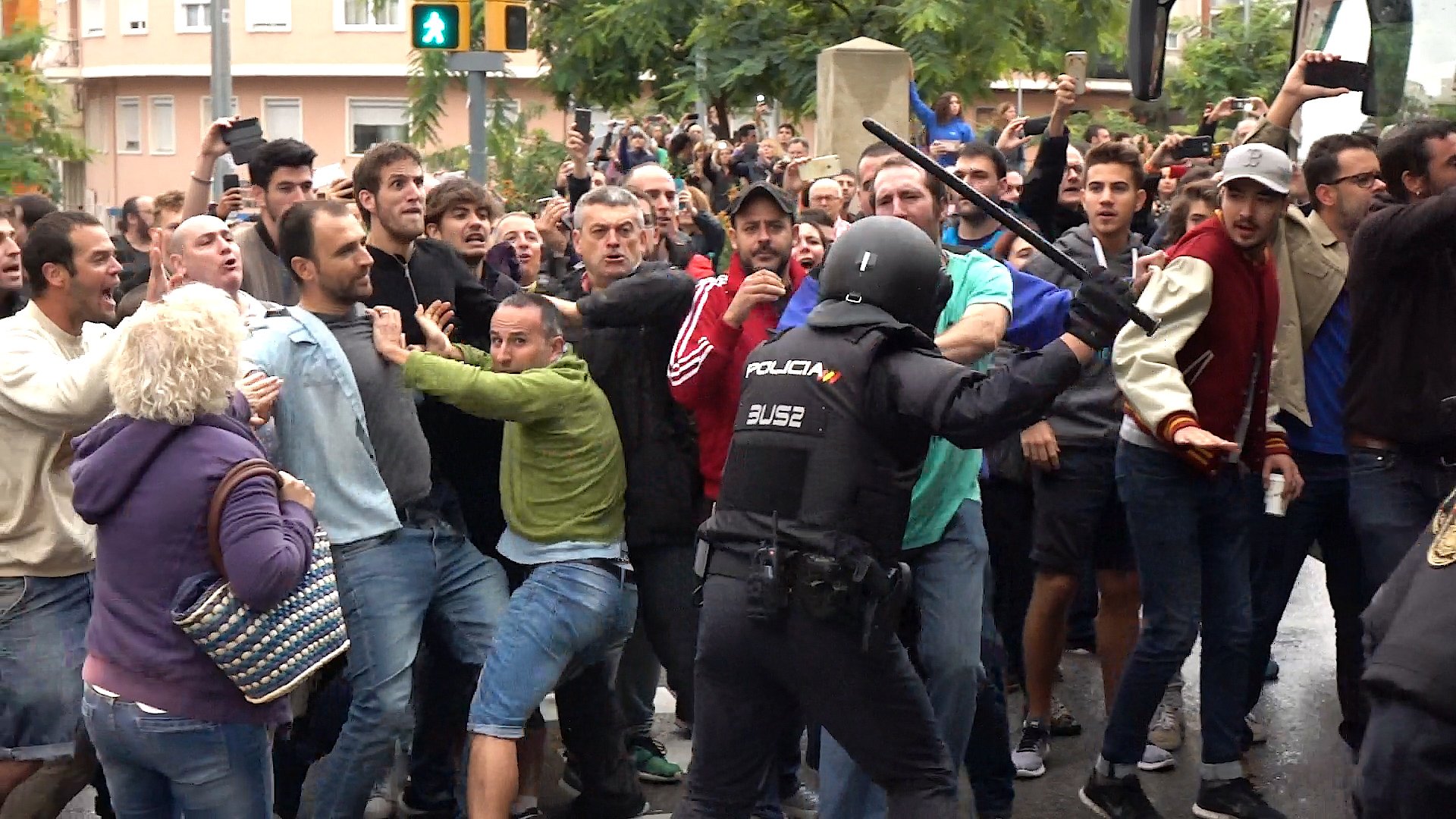The judge investigating the police attacks in Barcelona during the 1st October independence referendum has rejected the public prosecutor's request to archive all the cases of those injured who still haven't brought complaints. Instead, he will contact them all, directly or through the police, to offer them the chance of taking action.
In an interlocutory order which Spanish news agency EFE has had access to, the judge in charge of Barcelona's court of instruction number 7 emphasises that there a "different reasons", including the "very clear social controversy" over what happened, which justify offering the possibility of bringing complaints to the fifty-odd people injured on 1st October who still haven't done so.
In so doing, the judge, who says that there are currently more than 230 complaints presented to his court by those injured in the police attacks during the 1st October referendum, rejects the petition from the public prosecutor to file all those cases of light injuries still without complaints.
"In this case, with very clear social controversy about the events that took place, prudence demands that all steps to be taken are taken on a solid base of reasoning," argues the judge. They add that only when those affected present their complaints, and not before, can they move forward with the procedure over their injuries, if they were light.
The judge, who was on duty for the whole of the day of the independence referendum, has recently ordered the Spanish National Police to identify the agents who took part in each of the interventions carried out to block the vote after it was suspended by the Constitutional Court.
In the order, the judge says that article 147 of the Criminal Code, on the crimes of injury, is "clear" in specifying that those which don't require medical or surgical treatment are only to be pursued legally if denounced by the victim.
"Now, given the development of the case to this point, where there are more than 230 complaints which have been presented and some 50 reports of injuries not yet denounced, different reasons support offering all those affected the option of taking action," he says.
The judge believes that the first and "most logical" reason is for "procedural economy", to find out whether all those affected want to bring complaints so they can take the "correct" procedural decisions.
"The presentation of new complaints, once those initially presented are resolved, would mean duplicating actions, declarations and even hearings, which should be avoided," argues the judge. As such, they believe it "necessary" to call on those injured, or instruct the police to, to find out whether they plan to bring complaints or not.
Another of the arguments wielded by the judge is that the grading of injuries can only be done having a medical report certifying how serious they were. If the injuries were light and there is no complaint, that particular case will be archived.
They also note that in the original complaint from the Catalan government, and in a number of the later complaints, the initial, provisional description of the facts "goes beyond the mere crime of injury". Also included are crimes against moral integrity and of damages, duress and public disorder, among others, which don't need to be denounced to be investigated.

